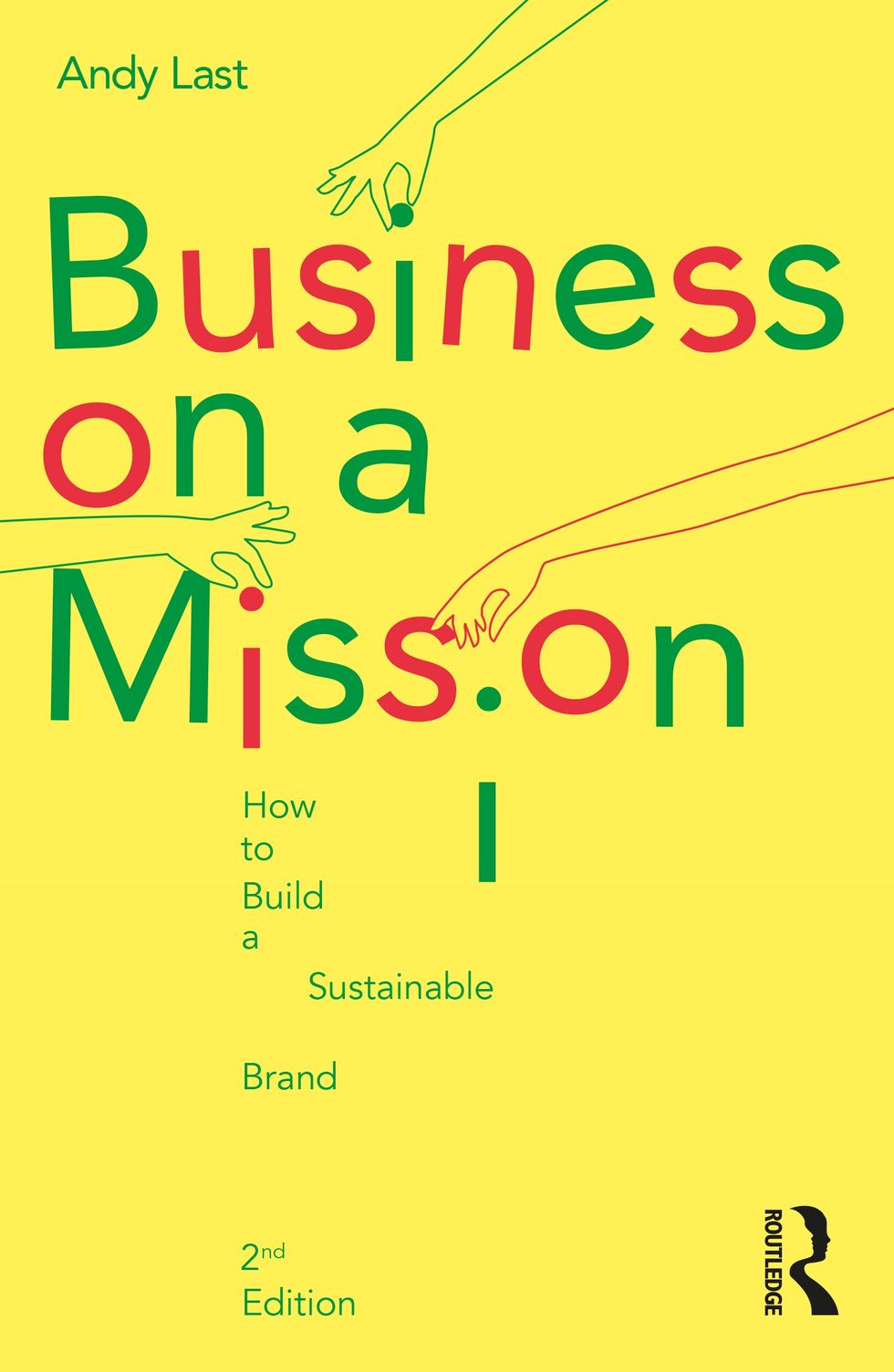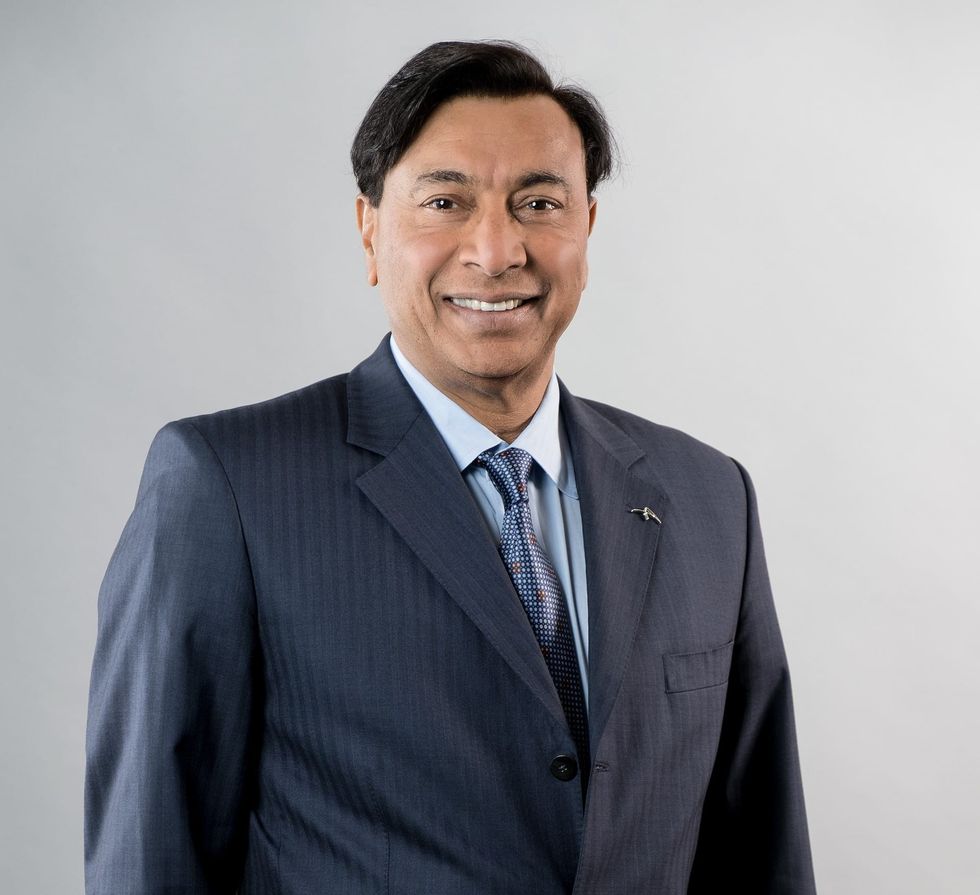Companies must link 'doing good' to the core drivers of trade, says author
BRITISH ASIAN companies can increase their brand value and make bigger profits by “doing good” for wider society, it has been suggested by author Andy Last who has been advising famous firms for 20 years.
Many of them already do that, of course, but Last’s philosophy is set out in detail in his book, Business on a Mission: How to Build a Sustainable Brand, published by Routledge last Thursday (20).
He argues there is no conflict between making a profit and doing good for society – in fact quite the reverse.
In an interview with Eastern Eye, Last considered the exemplary behaviour of Asian cornershop owners who have gone out of their way to look after vulnerable customers during the pandemic. They were very much part of the frontline.
“Absolutely, they will be remembered,” he said. “I’m sure they were driven by philanthropic community motives, but that is good for business in the long term, in terms of the relationships you build with the community.”
He added: “One of the things we all certainly realised in the past couple of years is how important community is again – something we maybe took for granted.”
Last, CEO of a consultancy called Mullenlow salt, which advises companies on how to improve brand value, addressed areas where British Asian businesses are active.
“If you’re in food or cash and carry, there are any number of issues – from food poverty to reducing food waste, to improving, supporting and improvements in farming – to do all those things,” he said.
“If you look at banking, there is clearly the social issue around financial literacy and helping businesses or individuals access those things.”
Since this year marks the 50th anniversary of the arrival of Uganda Asian refugees, Last’s comments appear particularly relevant: “The Asians who came in the 1960s and 1970s were entrepreneurial and set up lots of cornershops in the middle of communities.”
Today, of course, as demonstrated by Eastern Eye’s Asian Rich List, many of the British Asian businesses, run, say, by the Hindujas or the Mittals, are national, indeed global.
But Last feels his principles of “doing good” by engaging with wider society still applies and goes well beyond “corporate social responsibility”.
Last learnt his lessons working for Unilever whose Lifebuoy soap, first launched in 1894, was affordable and developed the idea of handwashing as an effective way of fighting germs and saving lives. As a small boy, Last grew up near Port Sunlight in the Wirral, Merseyside, where the Lever brothers, William and James, built their
soap factory and went further by constructing homes for their employees.

Later, Last worked in Kibera, near Nairobi, in Kenya, where Lifebuoy saved countless lives.
Lifebuoy soap’s award-winning social mission in Kenya was hailed as the “best social programme ever” by David Aaker, Professor Emeritus at the Haas School of Business, Berkeley.
Lifebuoy’s biggest market by far has been India. And during the pandemic, Lifebuoy sold a hand sanitiser, with the message people could warm to, “Welcome back old friend, a soap for our times”.
The first task for British Asian businesses seeking to improve their brand value is to identify their core activity – and then devise appropriate strategies to help clients and customers.
This is Last’s tip to Asian businesses: “What we do when we work with any business is to identify how you link ‘doing good’ to the core drivers of the business. Now, of course, you can give to charity, make donations and all those sorts of things. And those are very good things to do. But they don’t necessarily last and don’t always get to scale required.
“The thing is to look at what are the key drivers of your business – and then identify what social issue will help you with those key drivers of the business.
“So going back to the William Lever story, if your business is selling soap, then the key social issue you can address is hygiene and the prevention of disease. You should go all out to do that through everything you do in your day to day business. In any business, you can find a social issue which you can then expand by supporting charities and partners in that same subject area. I’ve yet to work with a business where you couldn’t find that.”
Last added: “People, by and large, want to do good. It’s identifying how doing good relates specifically to your business: it’s not to do good in some general sense, but actually to identify where doing good actually drives the business success.”
According to him, “Businesses do not exist outside of society. Any business wants to employ people from society, wants to sell to people in society, wants to do business with people in society. Forgetting that connection is dangerous for the health of a business.”
Another trend he has identified is that people aged 16-20 in “Generation Z”, are internet savvy, exchange information with one other and can “cancel” companies by organising boycott of those deemed unethical.
He explained what he meant about Generation Z: “They feel they have power. In the past, the people who could cause reputational damage to a business were very organised campaigners and pressure groups – like Greenpeace going after Shell. But nowadays, anyone can be an activist. They can publish and share information, share their thoughts and coalesce with their friends and social media groups.
“They can express their desire to cancel companies and brands they disagree with. We’re seeing increasing incidence of boycotts – choosing not to buy products from companies associated with the wrong issues in their views.
“Certainly, banks and fossil fuel companies are finding it more difficult. They used to be top of the agenda of people to work for but that’s not the case anymore.”
Last, who has updated the 2016 first edition of his book written in a very different world, said: “The pandemic has had a big impact in a number of ways One is that it has is accentuated the focus on what businesses do on social issues and Me Too and Black Lives Matter. I don’t think it was a coincidence that Black Lives Matter exploded during the pandemic.

“We don’t exist in isolation, either as individuals or businesses. It’s not like remote working, for example, was invented by the pandemic, but it just accelerated the adoption of technology that was there and available.
“The pandemic has absolutely added urgency to all these things.”
Last goes back to the lessons from Lifebuoy:
“Lifebuoy, a simple bar of soap, a brand over 130 years old, has shown – in an age of technological advances unimaginable when William Lever launched his brand by the banks of the Mersey – that the old idea of a business being a part of society, rather than apart from it, is relevant today.
“In fact, it is more relevant when those technological advances have opened businesses up to unprecedented scrutiny and challenge.
“The Lifebuoys of 130 years’ time will be those sustainable brands that have understood and embraced the opportunities offered by forming a closer relationship with society.”

















 Lakshmi Mittal
Lakshmi Mittal 
